Introduction to BCBA Education and Accreditation
The field of behavior analysis offers promising career opportunities for those interested in advancing behavioral therapies, particularly for autism spectrum disorders (ASD). At the core of this profession is the Board Certified Behavior Analyst (BCBA) credential, which requires completing specialized education, supervised experience, and passing a comprehensive exam. Ensuring that educational programs are accredited by reputable bodies, such as the Behavior Analysis Accreditation Board (BAAB) and recognized by the Behavior Analyst Certification Board (BACB), is crucial for aspiring professionals. This article explores the pathways to BCBA certification, the importance of accredited programs, and how prospective students can identify reputable schools to achieve their career goals.
Understanding the Educational Requirements for BCBA Certification

What degree is required for BCBA certification?
To qualify for BCBA certification, aspirants need a graduate degree, usually a master's in applied behavior analysis (ABA) or a similar field. This degree must be earned from an institution accredited by recognized bodies like ABAI, ensuring it meets rigorous standards. The coursework component is crucial; it must include around 270 hours in specific areas such as ethics, behavior analysis principles, research methods, and assessment strategies. Accredited programs, including those offered online or in hybrid formats, are aligned with standards set by the Behavior Analyst Certification Board (BACB).
Many universities globally, like Florida Institute of Technology, Ohio State University, and Teachers College Columbia University, offer ABA programs that meet these requirements. These programs typically combine coursework, supervised practicum, and research, preparing students for certification exams and professional practice.
What are the certification requirements for BCBA?
Achieving BCBA certification involves multiple steps. First, candidates must hold a master's degree that includes approved coursework in behavior analysis. They must also complete a designated amount of supervised fieldwork, totaling at least 1,500 hours. This hands-on experience is fundamental, as it provides practical skills aligned with BACB standards.
Following coursework and fieldwork, candidates must pass the BCBA exam, which tests knowledge of behavior analytic concepts, ethics, and application strategies. Continuous professional development is also necessary for certification maintenance, ensuring practitioners stay current with evolving standards and research.
Additional information about programs and standards
| Program Level | Examples of Universities | Coursework Hours | Supervised Fieldwork | Certification Standard Year |
|---|---|---|---|---|
| Bachelor's Degree | Pepperdine, Purdue Global | Not specified | Not applicable | Not applicable |
| Master's Degree | Florida Tech, Ohio State University, Teachers College | Typically 270+ | Yes, 1,500 hours | 2022, 2026, standards for 2027 |
| Doctoral Programs | Various accredited institutions | Varies | Varies | Updated standards in effect |
These programs are designed to meet the detailed coursework and supervised practice standards dictated by BACB, including transition options from earlier standards, to support students in fulfilling all certification requirements efficiently.
For prospective students and professionals, utilizing accredited programs ensures compliance with BACB requirements, which are essential for eligibility to sit for the BCBA exam and for maintaining certification through ongoing education and practice.
Accelerating the Path to Certification
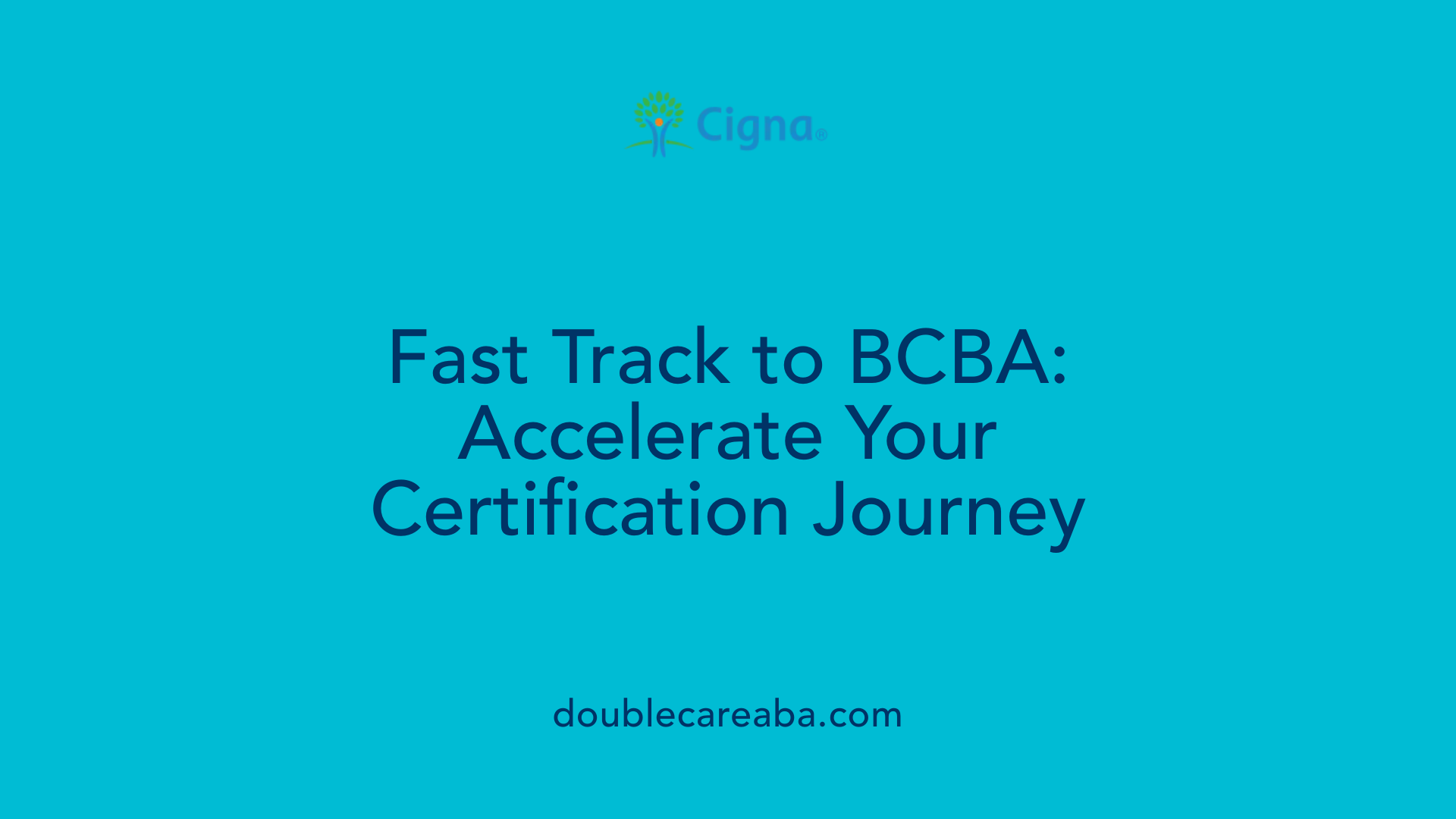 What is the fastest way to become a BCBA?
What is the fastest way to become a BCBA?
Achieving BCBA certification in the shortest time possible requires strategic planning and efficient execution of the necessary educational and practical components.
The initial step is completing a relevant master's degree that includes the coursework required by the BACB. Many accredited programs, such as those offered online or in hybrid formats, are designed to allow students to finish within 1.5 to 2 years. Choosing a program aligned with the BACB standards ensures that coursework directly prepares candidates for certification.
Simultaneously, candidates should focus on completing the supervised independent fieldwork hours mandated by the BACB, which is typically 1500 hours. This can often be performed concurrently with coursework or immediately after, depending on the program's structure. Efficient scheduling and meticulous documentation are essential to meet this requirement within 12 to 19 months.
After fulfilling coursework and supervised hours, the next phase involves intensive exam preparation. Many programs and third-party providers offer targeted review courses, practice exams, and study groups. Dedicating 2 to 3 months to focused studying enhances the likelihood of passing on the first attempt.
Once ready, candidates submit their applications and schedule the exam. The entire process from coursework completion to sitting for the exam can, with disciplined efforts, be condensed into approximately 4 to 6 years. However, highly organized candidates may accelerate this timeline, completing it in around 2 to 3 years.
Overall, disciplined planning, selecting accredited programs with clear pathways, and committed study are crucial for the fastest route to BCBA certification. Utilizing available resources such as online coursework, intensive prep courses, and experienced supervision can significantly shorten the journey toward becoming a licensed behavior analyst.
Role of Accreditation Bodies and Program Standards
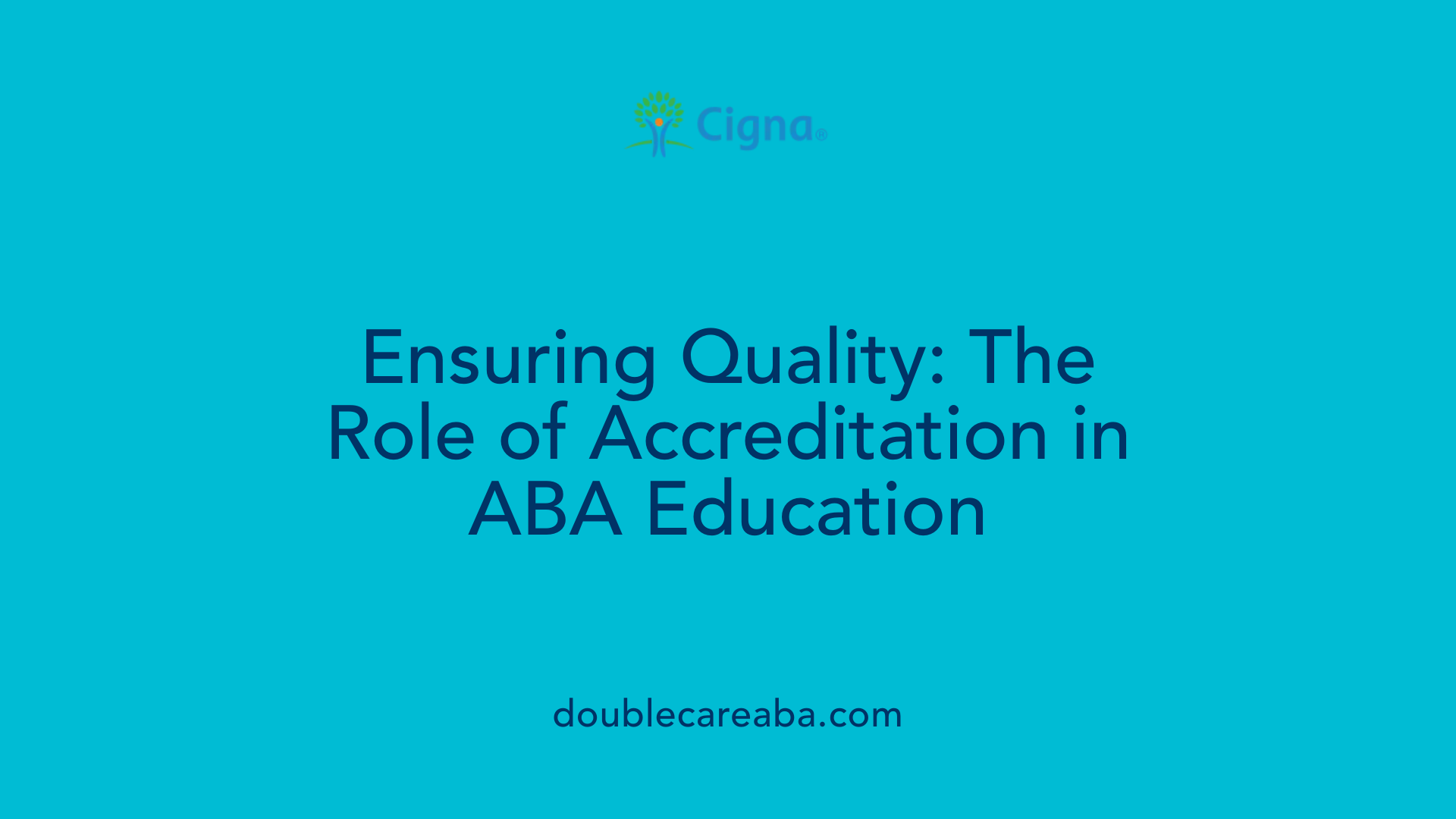
Major accreditation organizations
The primary organization responsible for accrediting behavior analysis programs is the Association for Behavior Analysis International (ABAI). Their accreditation process evaluates university programs offering bachelor’s, master’s, and doctoral degrees in behavior analysis.
Standards for programs
To ensure high-quality education, ABAI-developed standards require programs to provide comprehensive coursework, trained faculty, practicum and supervised fieldwork opportunities, and research involvement. The standards are periodically updated, with recent benchmarks aligning with the Behavior Analyst Certification Board (BACB) standards announced for 2022, 2026, and 2027.
Impact on certification eligibility
Graduating from an ABAI-accredited program is often a prerequisite for meeting the coursework requirements for BCBA and BCaBA certification applications. These accrediting standards help ensure that coursework meets the BACB’s rigor, increasing graduates' chances of passing certification exams.
How can I identify reputable ABA programs and ensure their accreditation?
To identify respected programs, verify that the university program is accredited by a recognized body like ABAI. Checking the ABAI website provides an updated list of accredited programs at various degree levels. Accreditation status can include initial accreditation, re-accreditation, or eligibility to apply, with detailed criteria available from the ABAI Accreditation Board.
Ensure the coursework aligns with current BACB standards, including the latest updates in 2022, 2026, and 2027. Additionally, accredited programs typically feature qualified faculty, practicum opportunities, and research components. Programs lacking accreditation should be approached cautiously, as they may not fulfill the necessary coursework criteria for BCBA certification.
Overall, confirming accreditation through recognized organizations guarantees that the program adheres to high standards, preparing students for certification and professional success.
Overview of Accredited ABA Programs and Universities
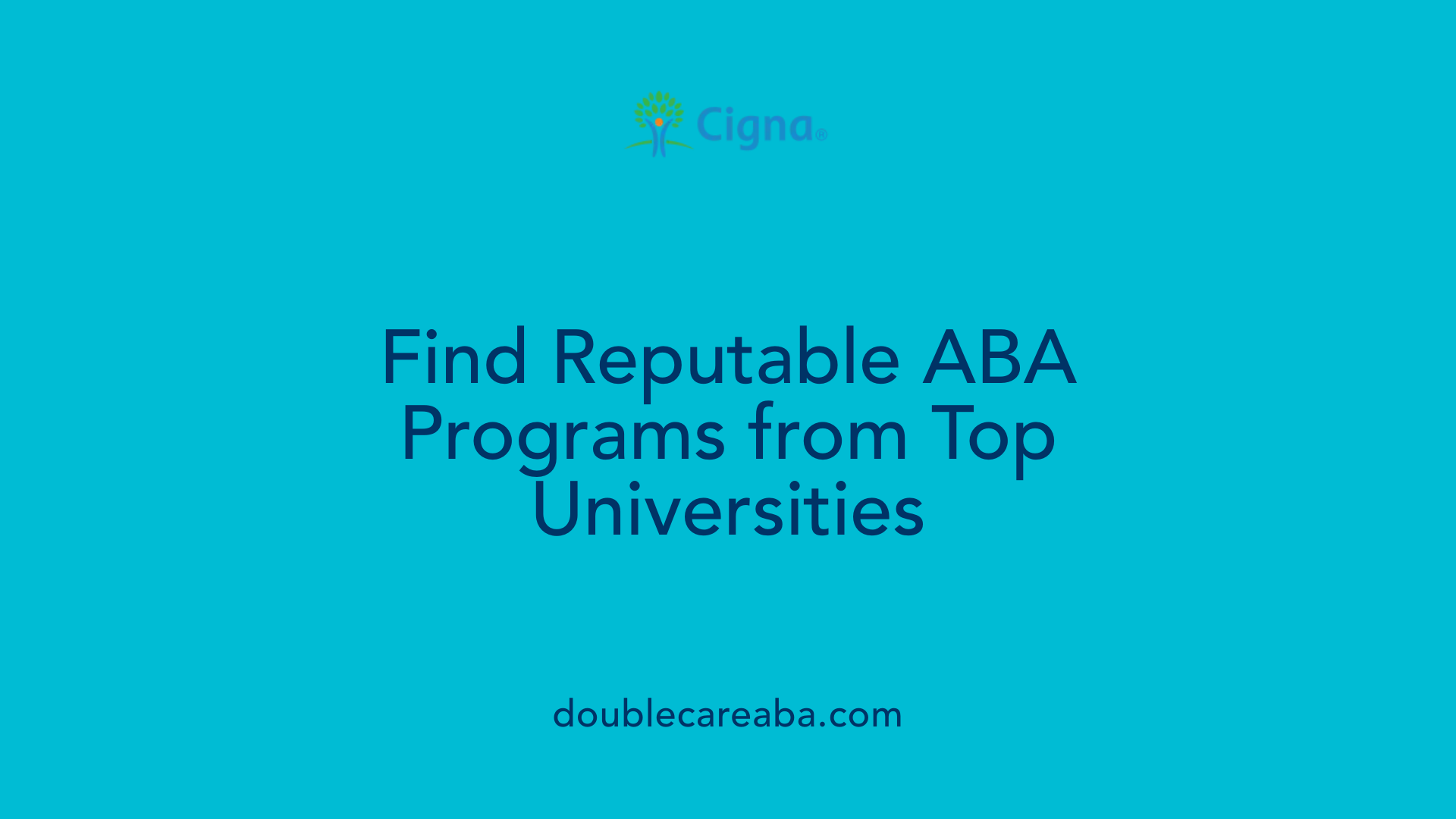 A variety of universities worldwide offer ABA (Applied Behavior Analysis) degree programs at undergraduate, master's, and doctoral levels, many of which are recognized by the Association for Behavior Analysis International (ABAI). These programs are designed to meet rigorous standards and ensure that graduates are eligible for certification by the Behavior Analyst Certification Board (BACB).
A variety of universities worldwide offer ABA (Applied Behavior Analysis) degree programs at undergraduate, master's, and doctoral levels, many of which are recognized by the Association for Behavior Analysis International (ABAI). These programs are designed to meet rigorous standards and ensure that graduates are eligible for certification by the Behavior Analyst Certification Board (BACB).
Leading institutions include Caldwell University, Florida Institute of Technology, Ohio State University, Teachers College Columbia University, Pepperdine University, Purdue Global, Walden University, Arizona State University, Arcadia University, and the Simmons School of Nursing and Health Sciences. These universities provide diverse options, including online, hybrid, and on-campus formats, accommodating different learning preferences and professional schedules.
Most programs combine coursework, practicum, and supervised fieldwork, aligned with BACB standards for BCBA (Board Certified Behavior Analyst) eligibility. They also offer preparatory certificates, continuing education courses, and workshops for ongoing professional development.
From national to international levels, these accredited programs aim to produce well-qualified behavior analysts capable of delivering high-quality services, particularly for autism and other developmental disorders. Their accreditation status includes initial accreditation, re-accreditation, and eligibility for application, ensuring consistent quality and adherence to current standards.
Curriculum and Standards in ABA Programs

What are the key components of ABA program curricula?
ABA programs are designed to thoroughly prepare students for a career in behavior analysis by covering essential areas aligned with certification standards.
Core coursework touches on behavior principles, ethics, assessment, intervention, and organizational behavior management. These subjects form the foundation of effective ABA practice and are supported by specific instructional hours mandated by standards set by the Behavior Analyst Certification Board (BACB).
In addition to theoretical knowledge, many programs include research methods and data collection techniques to foster evidence-based clinical practice. This focus ensures students can apply scientific principles during their work with clients.
Practical training is a crucial part of ABA curricula. Students typically complete supervised fieldwork, including practicum experiences, to meet BACB requirements for hands-on practice. These experiences usually total around 2,000 hours and are structured to provide real-world exposure to behavior analytic interventions.
Programs aim to prepare students for the BCBA exam by emphasizing core competencies such as behavior assessment, behavior change procedures, supervision, and ethics. This comprehensive approach ensures graduates are well-equipped to meet professional standards and deliver high-quality behavioral interventions.
Moreover, many ABA curricula offer research opportunities that foster innovation and deeper understanding of behavior analysis. These research activities help students stay updated with the latest scientific advancements and contribute to the evolving field.
Exam Preparation and Certification Success Rates

What are the key factors influencing BCBA exam success?
Success in passing the BCBA exam relies heavily on thorough preparation and access to quality resources. Accredited programs often include dedicated exam prep courses, practice exams, and comprehensive study guides to help students become familiar with the test format and content.
Programs with high pass rates tend to indicate strong curricula and effective support systems. For example, Florida Tech’s online master’s program achieved a 78% pass rate in 2023, demonstrating its effectiveness in preparing students for certification.
Supporting student success involves more than just coursework. Peer study groups, review workshops, and ongoing mentorship enhance learning and confidence. It is essential that coursework fully covers core areas such as behavior assessment, intervention strategies, ethics, and supervision practices.
Ultimately, consistent study, practical experience, and institutional resources play vital roles in helping aspiring behavior analysts reach their certification goals. Many reputable programs emphasize these aspects to maximize student success on the BCBA exam.
Industry Standards, Industry Updates, and Certification Maintenance
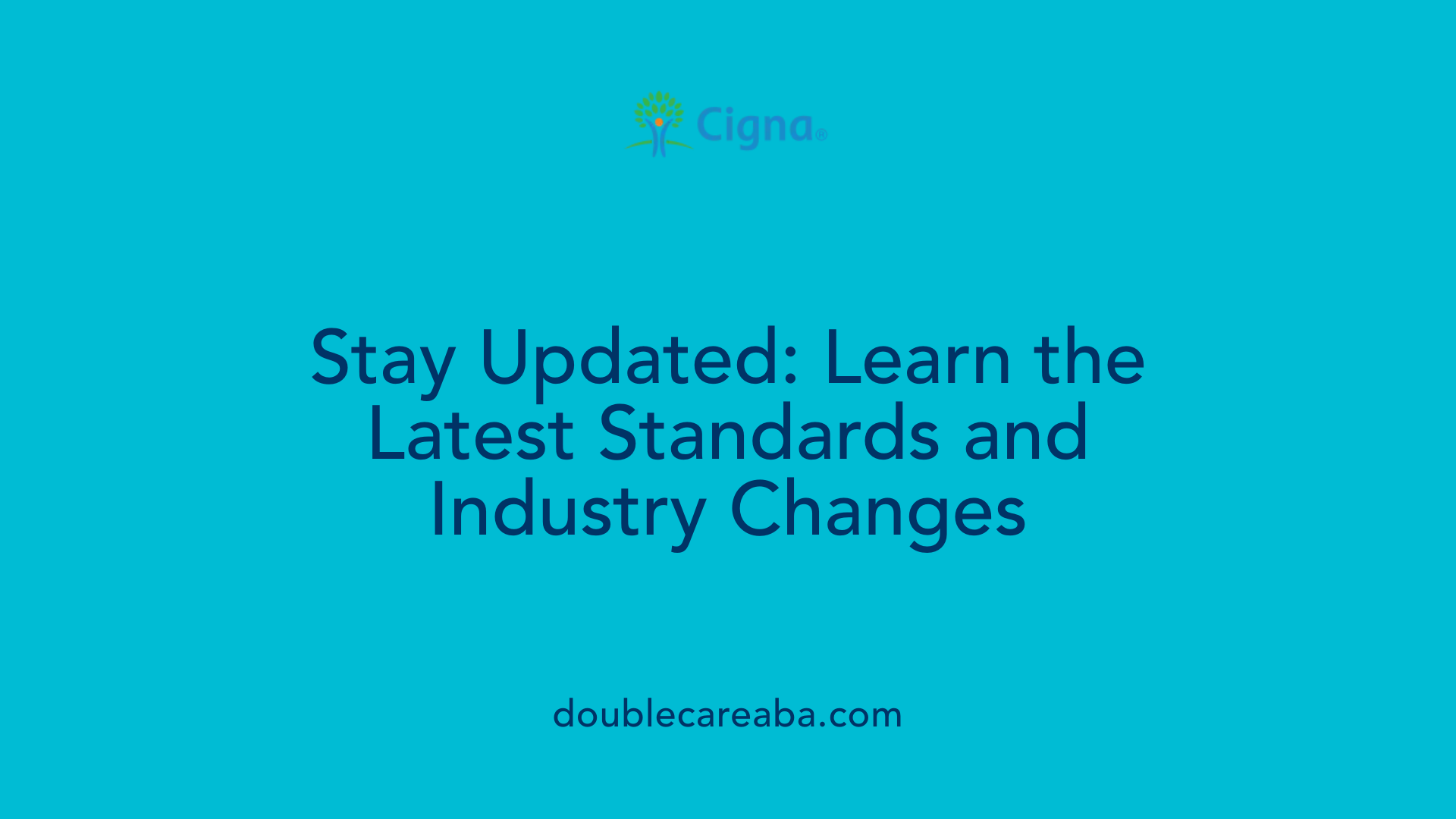
What are the key industry standards and updates for BCBA credentialing?
The Behavior Analyst Certification Board (BACB) establishes the primary standards for becoming a certified BCBA, including coursework, supervised fieldwork, and continuing education. Over the years, these standards have evolved to ensure practitioners stay current with scientific advancements and best practices in behavior analysis.
Recent updates have focused on refining exam procedures, now featuring online testing through Pearson VUE, which offers greater flexibility and accessibility for candidates. These updates also include detailed policies for maintaining certification, such as ongoing professional development requirements and renewal processes.
The BACB regularly publishes comprehensive handbooks that outline eligibility criteria, examination guidelines, and code of ethics. These documents help credential holders remain compliant and prepared for changing industry trends.
Staying informed about these updates is crucial for professionals to maintain licensure and certification. Prospective and current BCBAs should frequently visit the BACB website to review policy changes, exam content updates, and new standards for continuing education.
Engaging with the latest industry policies ensures that behavior analysts uphold the integrity and scientific rigor of their practice. This commitment to current standards not only supports professional growth but also enhances the quality of services provided to clients.
Choosing Reputable ABA Programs: Tips and Resources
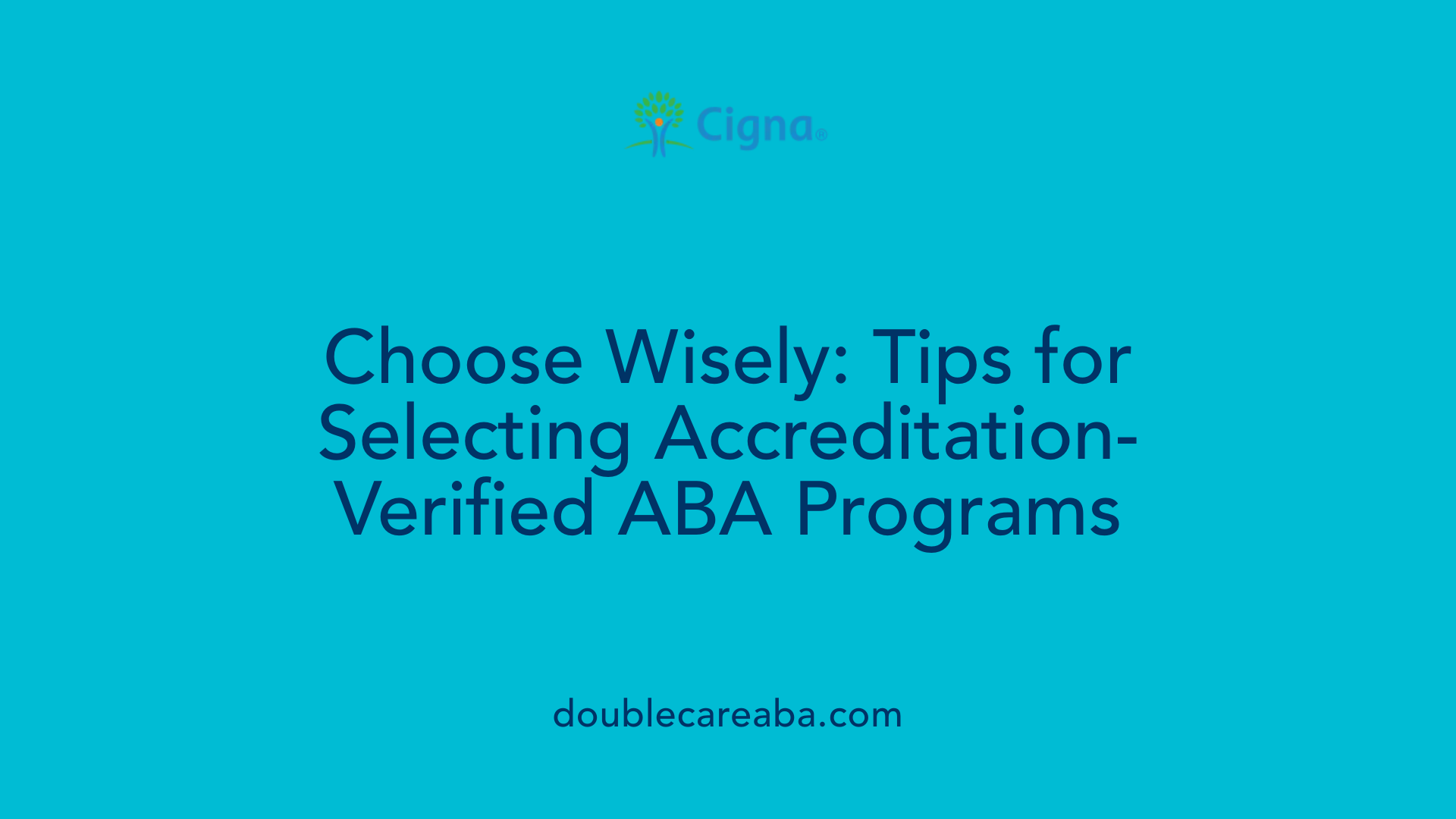
How can I identify reputable ABA programs and ensure their accreditation?
Finding a trustworthy Applied Behavior Analysis (ABA) program starts with verifying its accreditation status. Programs accredited by the Association for Behavior Analysis International (ABAI) through their rigorous review process meet the standards set by the Behavior Analyst Certification Board (BACB). These standards are crucial because they align with the coursework needed for becoming a certified BCBA or BCaBA.
You should confirm that the program is listed as accredited or eligible for accreditation on the ABAI website. Look for programs that have a clear track record of success, including high BCBA exam pass rates and involvement in research activities.
Assessing the program’s faculty is equally important. Qualified faculty with practical experience and scholarly contributions in behavior analysis ensure a high-quality learning environment. Programs offering comprehensive coursework that covers core areas such as ethics, assessment, intervention, and supervision are essential for certification readiness.
Additionally, reputable programs provide practical training opportunities through supervised fieldwork, practicum placements, or community partnerships. Such experiential learning prepares students for real-world applications.
Consulting resources like the ABAI directory or the BACB’s list of approved coursework offers current and credible options. A good program also supports students with resources such as mentorship, research involvement, and career guidance.
In summary, by confirming accreditation, evaluating faculty and coursework quality, and reviewing student success metrics, you can select a reputable ABA program that effectively prepares you for certification and professional excellence.
Advancing Your Career with Accredited Programs and Certification
Choosing an accredited ABA program that meets BACB and ABAI standards is essential for a successful career as a BCBA. These programs ensure comprehensive coursework, supervised practical experience, and high exam pass rates, all of which support your professional growth. Staying informed about industry updates and certification requirements will help you maintain and enhance your credentials over time. For prospective students, diligent research and selecting reputable, accredited schools will lay a solid foundation for certification and a rewarding career in behavior analysis, whether in clinical practice, educational settings, or organizational environments.













